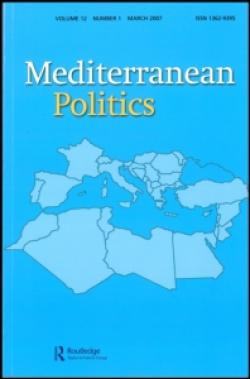The EU and Islamist parties in Tunisia and Egypt after the Arab uprisings: A story of selective engagement

This article argues that the new EU’s selective engagement with Islamist parties in its Southern neighbourhood following the Arab uprisings is the result of a partial shift in the EU’s frame used to understand political Islam, combined with a form of pragmatism that puts a premium on finding interlocutors in the region. Using the case studies of Tunisia and Egypt, it shows that the EU has replaced its previous monolithic conception of political Islam with an understanding that is more sensitive to differences among Islamists. This opens the door to some forms of engagement with those actors that renounce violence and demonstrate their commitment to work within the confines of democratic rules, while violent strands of political Islam and conservative groups remain at arm’s length.
-
Dati bibliografici
in Mediterranean Politics, Vol. 23, No. 1 (March 2018), p. 83-102 -
ISBN/ISSN/DOI:
10.1080/13629395.2017.1358901



